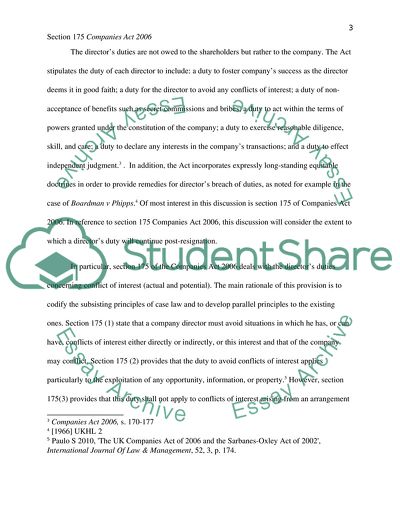Cite this document
(The Companies Act 2006 Essay Example | Topics and Well Written Essays - 2250 words, n.d.)
The Companies Act 2006 Essay Example | Topics and Well Written Essays - 2250 words. https://studentshare.org/law/1771771-to-what-extent-does-a-directors-duty-under-section-175-companies-act-2006-continue-post-resignation
The Companies Act 2006 Essay Example | Topics and Well Written Essays - 2250 words. https://studentshare.org/law/1771771-to-what-extent-does-a-directors-duty-under-section-175-companies-act-2006-continue-post-resignation
(The Companies Act 2006 Essay Example | Topics and Well Written Essays - 2250 Words)
The Companies Act 2006 Essay Example | Topics and Well Written Essays - 2250 Words. https://studentshare.org/law/1771771-to-what-extent-does-a-directors-duty-under-section-175-companies-act-2006-continue-post-resignation.
The Companies Act 2006 Essay Example | Topics and Well Written Essays - 2250 Words. https://studentshare.org/law/1771771-to-what-extent-does-a-directors-duty-under-section-175-companies-act-2006-continue-post-resignation.
“The Companies Act 2006 Essay Example | Topics and Well Written Essays - 2250 Words”. https://studentshare.org/law/1771771-to-what-extent-does-a-directors-duty-under-section-175-companies-act-2006-continue-post-resignation.


